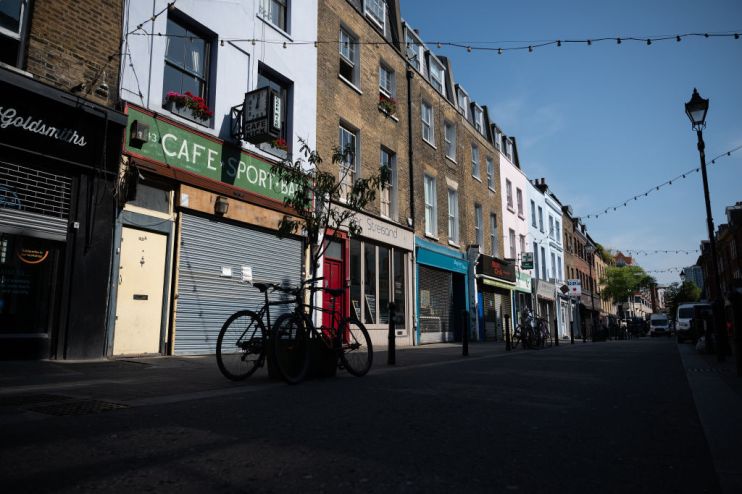OBR chief rules out post-crisis ‘v-shaped’ economic recovery for UK

The head of the government’s independent budget watch dog has said a quick, “v-shaped” economic recovery is very unlikely for the UK as it comes out of the Covid-19 lockdown.
The Office for Budget Responsibility (OBR) director Robert Chote said today that people should “expect a slower recovery than the v-shaped” recovery first predicted by some and that the economy may face “permanent scarring” as a result of Covid-19.
The OBR predicts the second quarter, between April and June, will see a 35 per cent drop in UK GDP this year.
The watchdog also modelled at the time a scenario in which the economy is able to bounce back quickly as the social distancing restrictions are lifted.
However, the idea that the economy will see a v-shaped comeback is now beginning to be widely doubted.
Last week, there was talk among some economists that the government’s furlough scheme was hiding how many businesses had really gone bust over the past two months and that mass lay offs will ensue when the scheme ends.
Chote said the prospect of permanent damage to the economy is a very real one and that it was unlikely for many sectors, such as hospitality, to go back to trading as they were pre-crisis.
“I think you’re likely not going to see the economy bouncing back to where we expected it otherwise to be by the end of the year…but instead a rather slower recovery,” he said.
“The key worry is if you have, not just a very sharp downturn in the economy, but one that scars its future potential.
“When we talk about scarring, we’re talking about whether the short-term hit to the economy has permanent or at least very long-lasting consequences.”
Treasury analysis revealed by the Telegraph last week showed the government’s budget deficit would likely rise to at least £300bn this year – a sixfold increase from first projected.
However, Chote said the result of a bulging deficit and greater debt would not necessarily be another round of austerity like after the 2008 financial crisis.
“The fact that the level of debt goes up on its own doesn’t necessarily mean you have to have the austerity that followed the financial crisis,” he said.
“Much more important to that is if you have the effect of scarring on the economy – if the economy is smaller you get permanently less tax revenue for example.
“Do we come out of this with a bigger debt interest bill? Do we want to spend a higher proportion of national income on social and health care?”
Prime Minister Boris Johnson has already categorically denied the government would pursue a round of austerity in the future to cut the deficit.